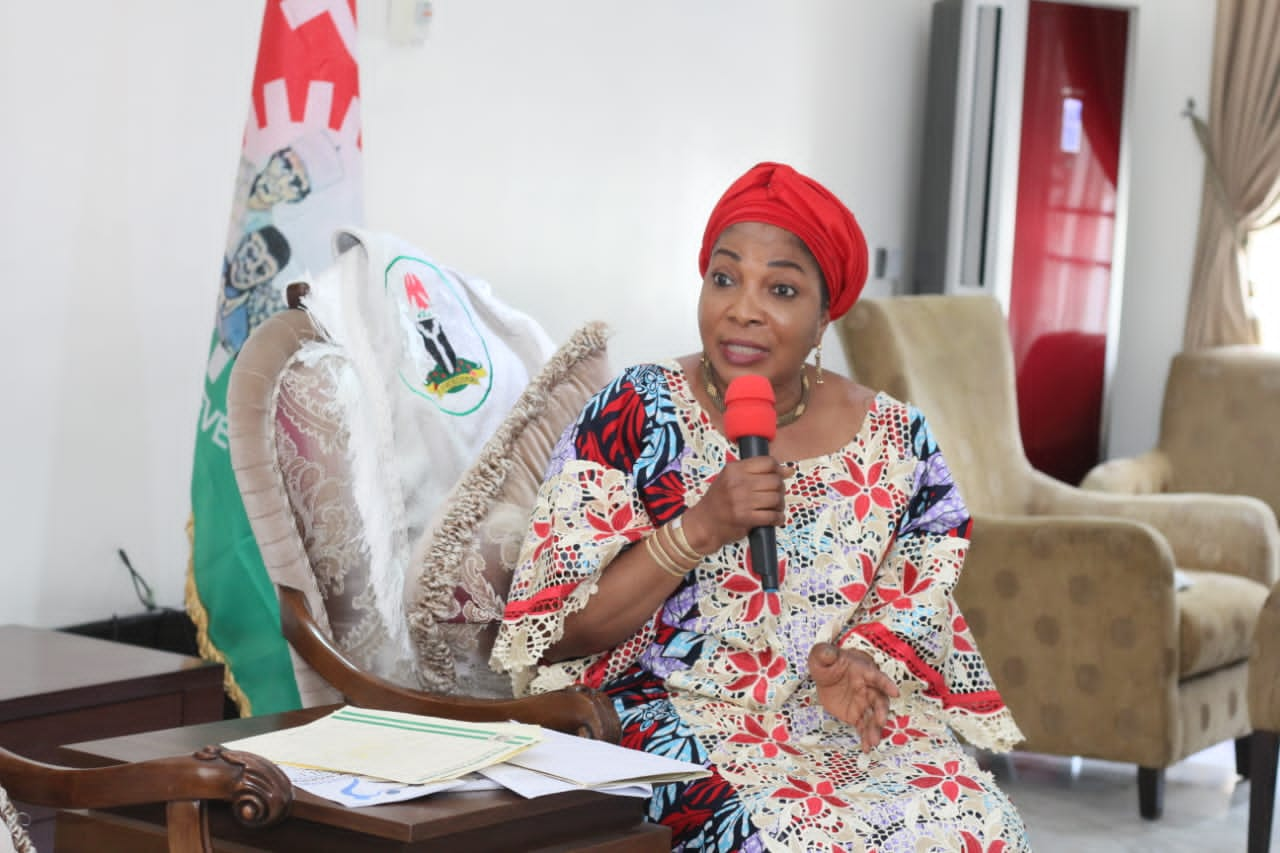
The wife of Abia State Governor, Mrs. Priscilla Otti
As Abia State Government prioritizes rebuilding it’s health institution and facilities for efficient health care delivery across the state, the wife of the Governor, Mrs. Priscilla Otti says that the state government under Governor Alex Otti will not renege on policies that will provide quality health care management of women and the girl child.
Mrs. Otti stated this during a courtesy visit by the coalition of civil society organizations on menstrual health and hygiene management at her country home of Nvosi in Isiala Ngwa South local government area of the state.
She applauded the effort of the group for working tirelessly to ensure that Abia gets all the attention it deserves from the federal government concerning menstrual health and hygiene management.
Mrs. Otti emphasized that while the state government is overwhelmingly working to develop Abia, it is imperative on us as mothers to educate our girls on menstrual health and hygiene management to avoid infections and change the narrative of some cultural stigmatization of menstruation.
“As a government, a technical committee on menstrual health and hygiene management is on the way to look into the challenges the girl child has even as we pleads to the federal government for tax reduction on manufacturers of sanitary pads”.
“The composition of the committee will be comprehensive and will work relentlessly with other stakeholders to ensure that its goal is achieved,” Mrs. Otti stated.

Coalition of civil society organization on menstrual health and hygiene management during the visit
Earlier, the leader of the group, Mrs. Nneka Udensi said that they have come to intimate the wife of the Governor on the importance of a technical committee on menstrual health and hygiene management in the state.
According to her, Abia and other South East sister states has no technical committee on menstrual health and hygiene management and therefore lacks assistance coming from the federal government on the issue.
Udensi explained that a functional technical committee on menstrual health and hygiene management for the state when fully operational would come up with policy direction that will not just support the girl child but ameliorates the pains associated with menstruation.
She identifies education, sensitization as key to demystify the taboo associated with menstruation and call for efforts to make sanitary pads available for the girl child.
Meanwhile, the Commissioner for Women Affairs, Dr. Maureen Aghukwa assures that the state government is working hard to get the committee on track.
Her counterpart, the Commissioner for the vulnerable Groups and Social Protection, Mrs. Ngozi Blessing Felix added that the state government has a huge task to set up hygiene facilities especially in the schools to drive the change.

























